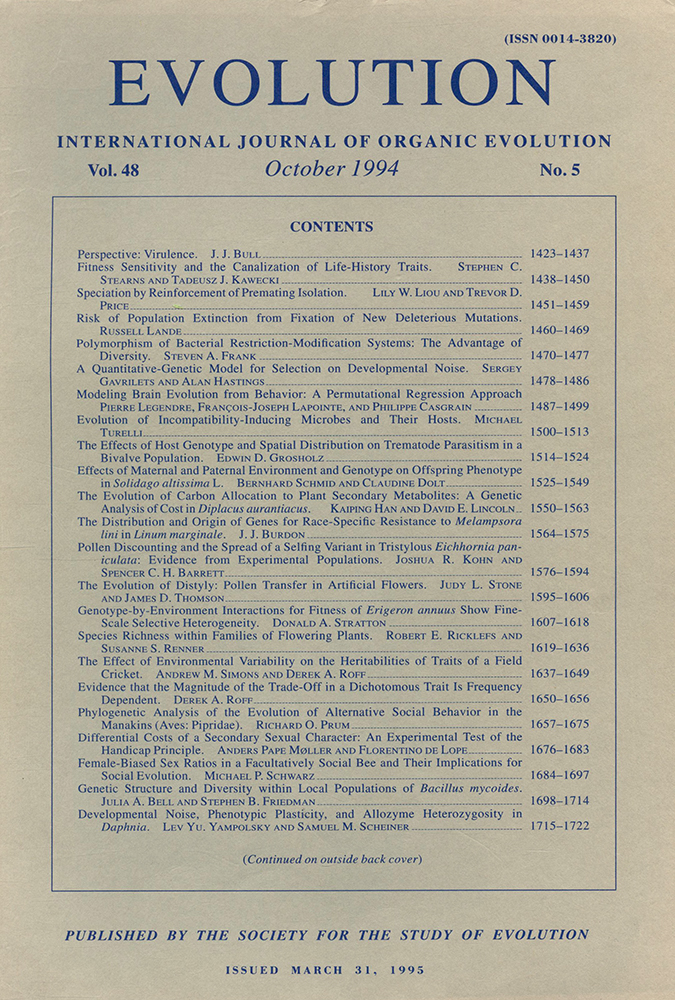POLYMORPHISM OF BACTERIAL RESTRICTION-MODIFICATION SYSTEMS: THE ADVANTAGE OF DIVERSITY
Abstract
Bacterial restriction-modification systems provide defense against foreign DNA by using a self versus nonself recognition mechanism. A great diversity of recognition motifs is maintained in natural populations. Circumstantial evidence suggests that defense against bacteriophage viruses favors this diversity. (1) Bacterial restriction enzymes can destroy invading phage DNA. (2) Phage DNA can mimic the host's self-recognition mechanism. The ability of the virus to pose as a mimic favors diversification of the host's recognition motif. Other observations suggest that restriction modification (RM) does not provide any significant defensive advantages in mature communities.




